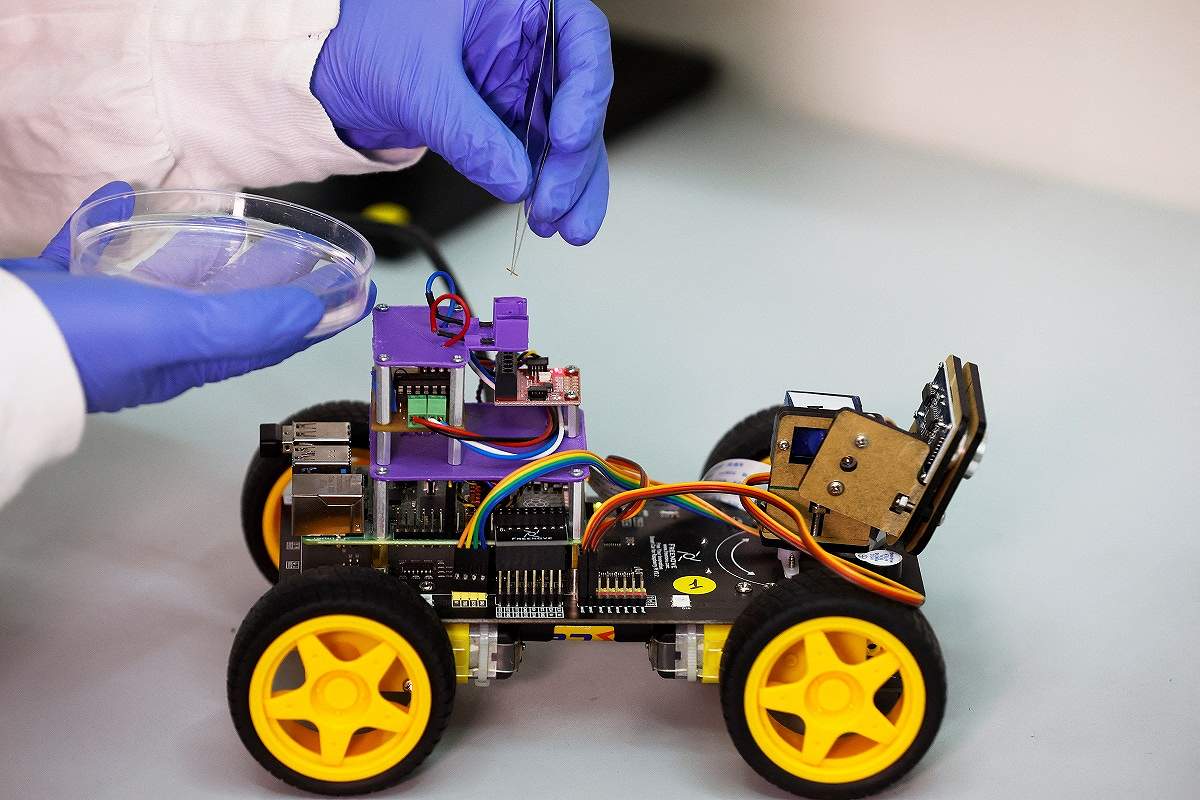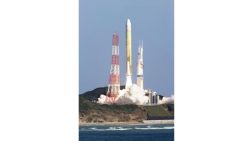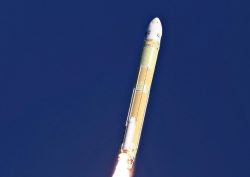
A scientist fits a locust antenna to a newly-developed robot, which allows it to detect and identify odors, at Tel Aviv University, on Jan. 25.
13:53 JST, March 2, 2023
TEL AVIV (Reuters) — A new sniffing robot equipped with a biological sensor that uses the antennae of locusts could help advance disease diagnosis and improve security checks, its Israeli developers said.
Locusts have an acute sense of smell, which the researchers in Tel Aviv University have managed to harness to their bio-hybrid robot, making it far more sensitive than existing electronic sniffers, they said.
Locusts smell with their antennae. On the four-wheeled robot, the researchers placed the insect’s antenna between two electrodes that send electrical signals as a response to a nearby odor. Each scent has a unique signature which, with machine learning, the robot’s electronic system can identify.
“Ultimately, we are trying to create a robot with a sense of smell that will be able to distinguish between smells and to locate them in space,” said Neta Shvil of the Sagol School of Neuroscience.
Top Articles in Science & Nature
-

Japan Institute to Use Domestic Commercial Optical Lattice Clock to Set Japan Standard Time
-

Space Mission Demonstrates Importance of International Cooperation, Astronaut Kimiya Yui Says
-

Japan to Face Shortfall of 3.39 Million Workers in AI, Robotics in 2040; Clerical Workers Seen to Be in Surplus
-

Record 700 Startups to Gather at SusHi Tech Tokyo in April; Event Will Center on Themes Like Artificial Intelligence and Robotics
JN ACCESS RANKING
-

Japan Institute to Use Domestic Commercial Optical Lattice Clock to Set Japan Standard Time
-

Israeli Ambassador to Japan Speaks about Japan’s Role in the Reconstruction of Gaza
-

Man Infected with Measles May Have Come in Contact with Many People in Tokyo, Went to Store, Restaurant Around When Symptoms Emerged
-

Prudential Life Insurance Plans to Fully Compensate for Damages Caused by Fraudulent Actions Without Waiting for Third-Party Committee Review
-

Woman with Measles Visited Hospital in Tokyo Multiple Times Before Being Diagnosed with Disease

























